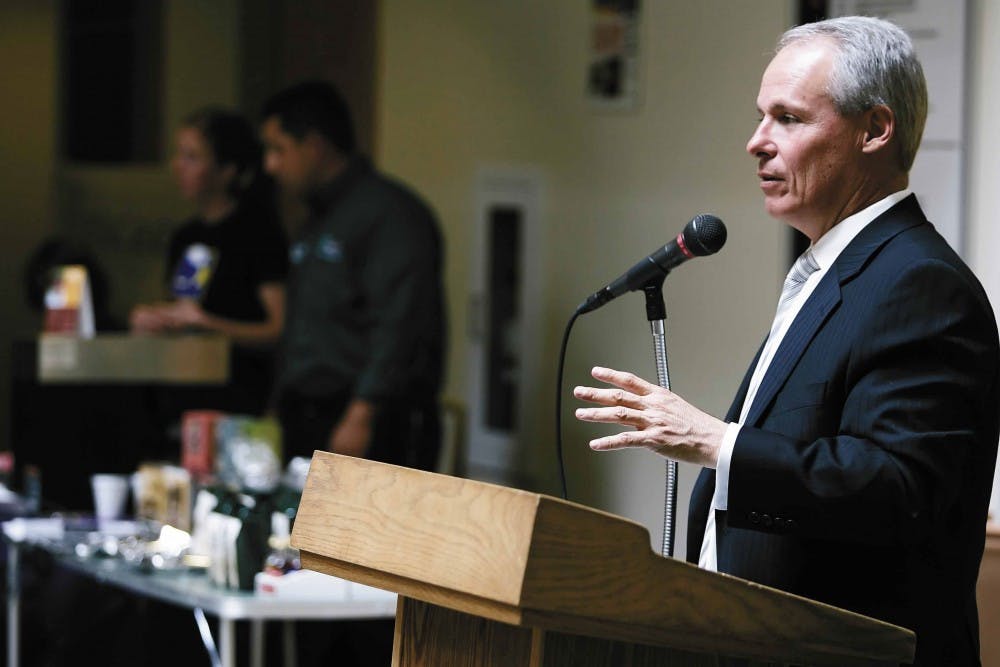by Bryan Gibel
Daily Lobo
Mayor Martin Chávez said Wednesday that fair trade and sustainability are important to Albuquerque's future.
Chávez said fair trade is similar to the sustainability measures the city is taking.
"If we're the place that's developing wind technology and solar technology, we're saving the planet, and we're creating an economy that is sustainable for young people," he said. "Fair trade is about exactly that, doing the right thing and, in the process, increasing economic opportunities."
Get content from The Daily Lobo delivered to your inbox
Chávez spoke in the SUB at the Fair Trade Forum, sponsored by the Albuquerque Fair Trade Coalition and the UNM Fair Trade Initiative.
About 60 people attended Chávez's speech, which was followed by small group sessions that focused on consumer
awareness, community outreach and business aspects of fair trade.
Fair trade is supposed to promote sustainability and provide producers with living wages.
Jim Neustel, executive director of Peacecraft at 3215 Central Ave. N.E., said fair trade isn't focused on maximizing profit or selling products at the lowest price possible.
Peacecraft is a volunteer-run store that sells fair trade goods.
Neustel said fair-trade seeks to help producers.
"Fair trade tries to deal directly with producers and minimizes the amount of costs incurred by middle men," he said. "It doesn't look for the lowest cost but a fair price for what is produced in order to help alleviate poverty and exploitation in the communities."
Because fair-trade products are
sometimes more costly than the competition, producers rely on consumers who are willing to pay more for ethically produced items, Neustel said.
"We count on people to recognize the value of the items that are produced in a fair-trade system and to step up and buy where it makes a difference," he said.
Kate Idzorek, operations manager for Just Cashews, an Albuquerque nonprofit that promotes fair trade, said fair-trade items are priced in a way that helps producers.
"We insist that producers get a fair price for the labor content they invest in making an item," she said. "For food products, the Fair Trade and Labeling Organization has a set price for each product and its origin that makes sure producers earn a living wage, and that doesn't fluctuate with the market."
Neustel said fair trade is rare in New Mexico.
"There are really a very tiny amount of groups that are doing fair- trade items," he said. "Peacecraft is probably one of the few places that actually dedicates its whole line to fair-trade items."
Chávez said the forum was an important step toward expanding fair trade in Albuquerque and across the state.
"Universities are traditionally agents of change, and fair trade is essential to economic sustainability," he said. "If we continually develop at the expense of less-industrialized nations, eventually it becomes unsustainable, and those countries rightfully say no. And we don't
want that."






